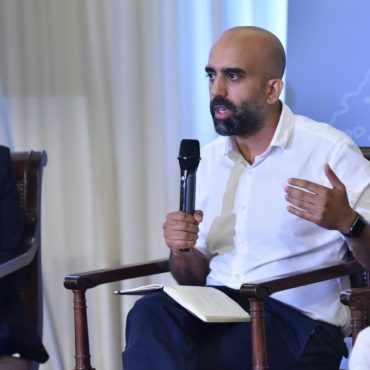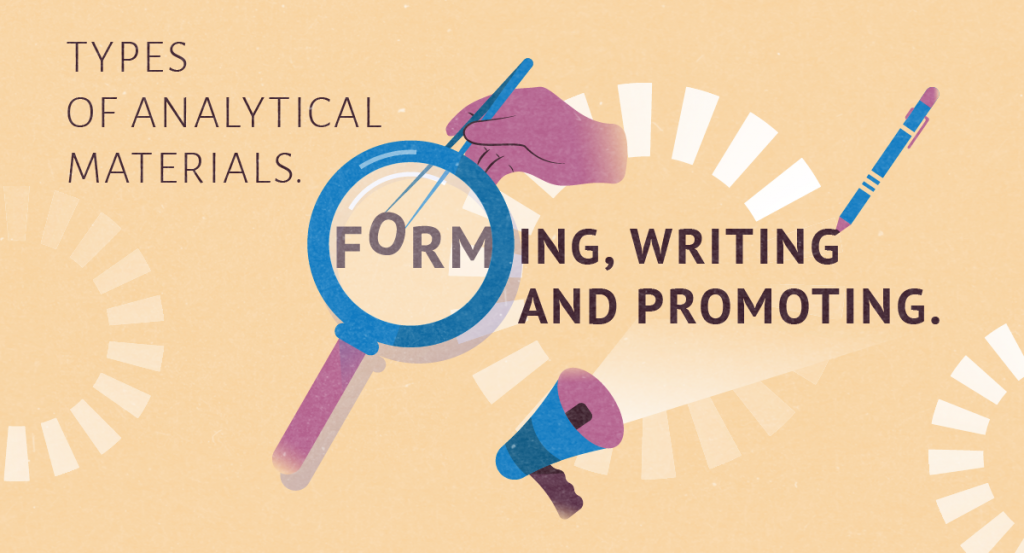What will you learn?
How to produce an analytical article
How to develope a longer policy brief or publication
How to work with sources and referencing
How to proof and present your work for publication
How to get yourself known as a young researcher
How to use social media to expand your reach
Program
-
Module 1
-
Module 2
-
Module 3
Instructors

Adam Hug
The Director of the Foreign Policy Centre since November 2017, overseeing the FPC's operations and strategic direction. He had previously been the Policy Director at the Foreign Policy Centre from 2008-2017. His research focuses on human rights and governance issues, particularly in the former Soviet Union. He also writes on UK foreign policy and EU issues. His previous roles included work as a consultant on EU consumer protection issues and working with Israeli and Palestinian trade unions and civil society groups. He studied at Geography at the University of Edinburgh as an undergraduate and Development Studies with Special Reference to Central Asia as a post-grad.

Poppy Ogier
Poppy joined the Foreign Policy Centre as Events and Projects Officer in 2019. Her previous roles include working in direct outreach, and project design and development for various non-profits and international organisations with a focus on migration. She has a Masters in Post-war Recovery Studies from the PRDU, University of York that focused on the influence of digital humanitarians on the response to the refugee and migrant crisis in Greece.

Amil Khan
The founder of Valent Projects, a digital communications agency for social impact. A former Chatham House associate fellow, Amil came to government after an award-winning career in journalism, working for the BBC and Reuters as a foreign correspondent and documentary filmmaker focusing on violent insurgencies in Iraq and Sudan. Since Valent's founding in late 2019, Amil has designed complex online research projects and developed and implemented a data-based digital strategy for election candidates.

Dr Edward Lemon
An expert on Central Asian affairs and the Research Fellow of the Foreign Policy Centre. He gained his PhD in international studies from the University of Exeter in the United Kingdom in 2016. His research has been published in Central Asian Survey, The RUSI Journal, Caucasus Survey, Central Asian Affairs, Foreign Affairs and the Review of Middle Eastern Studies. Dr Lemon frequently comments on stories relating to Central Asia. His opinions have appeared on the BBC, Democracy Now!, Reuters, Foreign Policy and a number of other outlets.
Feedback on “Types of analytical materials. Forming, writing and promoting”
Very useful information for a future generation of journalists and influencers. I liked how the speakers were telling the information. Additionally, the script also can be saved and reread later.
This resource delves into various formats and strategies for crafting analytical materials, catering to both beginners and seasoned professionals
The course is very full, the videos are so easy to understand.
it was very useful for me thank you so much.
You have successfully subscribed to the Cabar.Asia Media School mailing list
You need to activate the subscription by confirming the mail we sent you.

Frequently asked questions
How to register for the course?
First you need to register on the site itself, then select the course that suits you from the “Courses” section and register for the course itself.
Will I receive a certificate after completing the course?
The certificate is received by those who have passed all the lessons within the course and passed the final test successfully (at least 80%).
What if I don’t pass the test?
After each module in the course there is an intermediate test and a general test at the end of the course. You are given 10 attempts to pass the test. If it fails from the first attempts, you can review the lesson and take the test again. After exhausting 10 attempts, the system will be blocked. You will need to register for the course again to complete it.
What to do if the site is down?
Write to us at the indicated contacts in the “Contacts” section or in social networks.
What should I do if my name on the certificate is different from the name in the passport?
When registering, initially enter your data correctly. If you have indicated other details, write to us. We will correct and send the certificate with the correct data.
Can I take several courses?
Yes. You can take several courses at once or in sequence.
How often are courses updated?
Courses that already exist are not updated. We add new courses after they are crated.
How to participate in your other events?
We conduct various training events for journalists and journalism students from Central Asian countries. You can track new events on our website or on pages on social networks and take part. Often you need to register or pass a competitive selection.
Can only residents of Central Asia take courses?
Online courses are available to absolutely everyone regardless of place of residence. Offline events take place in one of the CA countries.
I am not from the media sector, but I want to enroll in the course. Is it possible?
Yes, everyone can take online courses.
How long is the course?
The duration of each course is determined individually, depending on the content and complexity of the course. The average duration is from 6 to 8 weeks. During this period, you must complete all the lessons and pass the tests. If you didn’t finish on time, the system will be blocked. But you can overwrite and go through again.



